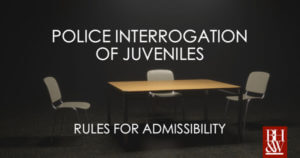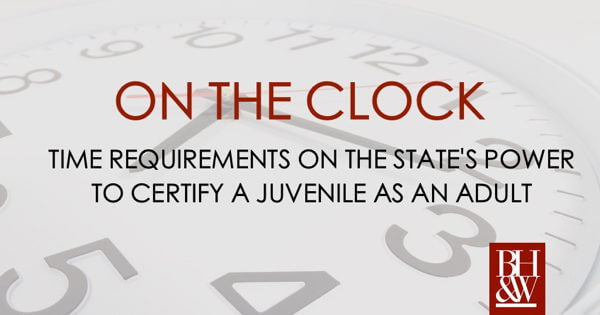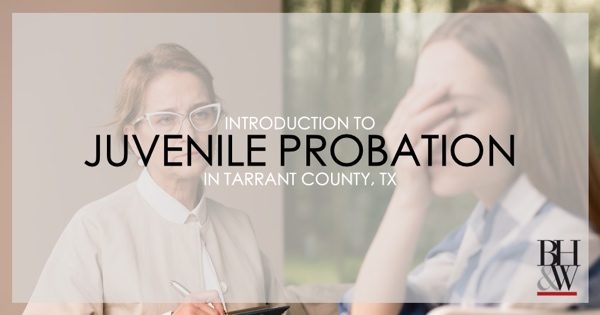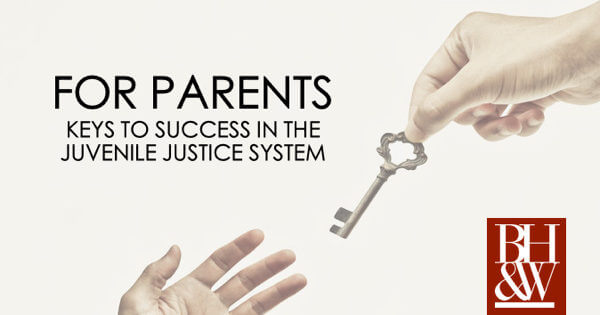 The juvenile justice system in Texas is a hybrid system which incorporates major elements of the adult criminal system, while maintaining separate rules and procedures to ensure that juveniles are not treated or labeled as criminals. In keeping with this philosophy, there are some special rules that apply when police officers take statements from juvenile suspects. This article will explain these rules and when they apply.
The juvenile justice system in Texas is a hybrid system which incorporates major elements of the adult criminal system, while maintaining separate rules and procedures to ensure that juveniles are not treated or labeled as criminals. In keeping with this philosophy, there are some special rules that apply when police officers take statements from juvenile suspects. This article will explain these rules and when they apply.
Two Types of Juvenile Statements
There are two types of statements: those taken as a result of custodial interrogation and those that are taken without custodial interrogation. There are different rules that apply, depending on which type of statement it is.
Voluntariness of the Statement
Historically in America, confessions have been looked at cautiously. This is because the police interrogation process has always been thought to be coercive by its very nature. The primary concern when viewing a statement given by a suspect is voluntariness. Therefore, no statement can be used in court unless it was voluntarily given. This voluntariness requirement applies to juvenile statements too. For noncustodial statements, voluntariness is the only requirement.
When looking at whether a juvenile statement was voluntary, the courts look at the totality of the circumstances. This means that the court will evaluate the situation including a child’s age, experience, background, education, intelligence, and their capacity to understand their rights and the consequences of waiving them. If, after considering all of the relevant factors in a particular case, the court determines that a noncustodial juvenile statement was voluntary, then it will be admissible in court against that juvenile.
Custodial Interrogation
A police officer that takes a juvenile’s statement as a result of custodial interrogation must not only ensure that the statement was voluntarily given, but also must comply with specific rules set out in the Texas Family Code. But first, you must ask two threshold questions: (1) Was the juvenile in custody? and (2) Was the juvenile being interrogated?
(1) Was the Juvenile in Custody?
Texas Family Code Section 51.095(d) considers a child to be in custody if he is in a juvenile detention facility, is in the custody of a police officer, or if he is in CPS custody and suspected of engaging in delinquent conduct. The Texas Court of Criminal Appeals decided that “in custody” means when a reasonable person, under the circumstances, would believe that his freedom was restricted to the point of a formal arrest. See Dowthitt v. State, 931 S.W.2d 244 (Tex. Crim. App. 1996). The Texas courts use a “reasonable innocent child” standard when looking at juvenile cases. See In the Matter of L.M., 993 S.W.2d 276 (Tex. App.—Austin 1999). Juveniles are not in custody, in the eyes of the Texas courts, when they are told by police that they are not in custody and are free to leave and at the end of the interview they are actually allowed to leave. See In the Matter of V.M.D., 974 S.W.2d 332 (Tex. App.—San Antonio 1998).
(2) Was the Juvenile Being Interrogated?
If a child is in custody at the time a statement is taken, then you must look to see if the statement was the result of interrogation. The United States Supreme Court ruled that interrogation includes any questioning by a police officer and any speech or actions that are reasonably likely to get an incriminating response. See Rhode Island v. Innis, 446 U.S. 291 (1980).
Special Rules for Custodial Interrogation Written Statements
If a child is in custody and interrogated, then special rules must be followed before his written statement will be admissible in court. These rules are laid out in Texas Family Code Section 51.095(a)(1).
- Before a juvenile in custody is interrogated, he must first be taken to a magistrate. The magistrate must advise the juvenile of his rights without the police officer being present.
- After being warned of his rights and agreeing to waive them in front of a magistrate, the child can then be questioned by the police officer outside of the magistrate’s presence.
- He can write a statement if he chooses. Before the juvenile signs his statement, however, he must be taken back in front of the magistrate.
- Without the police officer being present, the magistrate will review the statement with the child and determine if he understands the statement, voluntarily gave it, and voluntarily and intelligently waived his rights.
- Once the magistrate makes these determinations, the child can sign his statement in front of the magistrate.
Special Rules for Custodial Interrogation Oral Statements
The rules for making a juvenile’s custodial interrogation oral statement admissible in court are enumerated in Texas Family Code Section 51.095(a)(5).
- The statement must be recorded by an electronic recording device by an operator who is competent to use the device.
- All voices on the recording must be identified.
- The recording device must be capable of making an accurate recording.
- The recording of the child’s statement must be accurate and unaltered.
- Before the child gives the statement, the recording must show the magistrate giving the juvenile his warnings and the juvenile must waive each right on the recording.
- The magistrate may request that the police officer, after the interrogation is finished, bring the child and the recording back to the magistrate so the magistrate can review the recording with the child to ensure the statement was voluntarily given.
Exceptions for Oral Statements
Texas Family Code Section 51.095(a)(2)-(4) lays out the exceptions to the requirements for oral statements made while a juvenile is the subject of custodial interrogation. If any of these exceptions applies, then the special rules for oral statements listed above do not have to be complied with. These exceptions are: statements of fact made by the juvenile which are found to be true and tend to establish his guilt, res gestae statements, and statements made in open court or before a grand jury.
Conclusion
The juvenile system in Texas is intentionally separate and distinct from the adult criminal system in order to prevent treating children as if they are miniature criminals. Likewise, there are special rules that apply in some circumstances when a police officer takes a statement from a juvenile suspect. If a juvenile gives a statement without being the subject of custodial interrogation, then the courts will look at the totality of the circumstances to determine if that statement was given voluntarily. If so, then it will be admissible in court against the juvenile. If, however, the child was in custody and subject to interrogation, then these special rules must be followed in order for the statement to be admissible. These rules involve taking the child before a magistrate to be informed of his rights as opposed to being warned by the police officer. If these rules are violated, then the statement will be deemed to be inadmissible.










